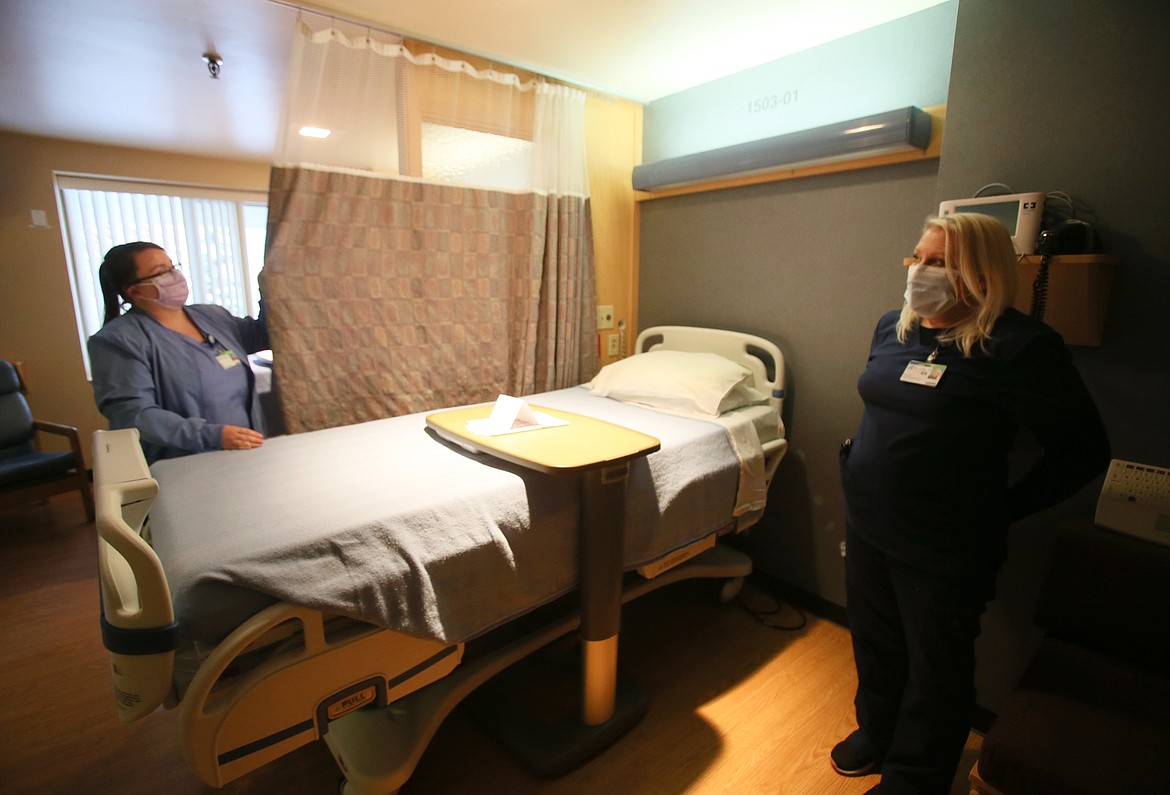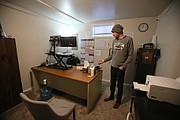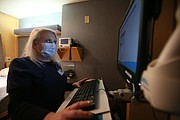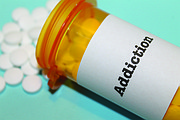Barriers to betterment
A journey of 1,000 miles doesn't begin until the first step is taken.
That first step might be the hardest step someone grappling with substance abuse will ever take, especially when the journey is sure to be difficult as it leads to sobriety — a seemingly unattainable destination for those under the weight of addiction.
What keeps a person from getting the treatment they need to begin that journey from sickness to clean and sober?
“The biggest barrier is cost. Period," Heather King, advanced practice registered nurse, said Wednesday. "And lack of insurance, and then whether or not insurance will cover it, and for how long."
King works with North Idaho Detox, a six-bed, inpatient drug and alcohol detox center that opened in July in Post Falls. It is owned and operated by husband and wife, Jacob Siegberg and Chelsea Mohr.
Siegberg concurred that cost is the biggest barrier for people seeking detoxification services.
"A lot of people don’t have the money to pay for it," Siegberg said.
Detox programs provide resources for people needing to clear their bodies of substances as they prepare to overcome addiction. Social detox does not require medication, but it does require a patient to stay at a detox facility for a few days to a week or so. Health care professionals help these patients as they go through the natural withdrawals. Medically supervised detox uses medication to help patients work through the process. Detox can be painful and riddled with withdrawal symptoms, requiring rest, counseling and other treatments.
"Many individuals who struggle with substance abuse do so alone," said Joshua Ericson, Interim Director of Center Operations for the Kootenai Recovery Community Center. "It’s not always because the person is refusing to get help. There are sometimes obstacles preventing people from seeking treatment for substance use disorder, no matter how much they want it."
The Kootenai Recovery Community Center, a nonprofit in Coeur d'Alene, offers support and services for those wanting — and needing — to make drastic changes in their lives.
Ericson said some of the most common barriers the center has seen include a lack of funding or high insurance deductibles/copays or insurance that only covers out-patient treatment; long wait times for initial intake appointments; lack of transportation or safe housing; and a general lack of knowledge regarding available resources within the community.
Unfortunately, he said, when the available number of beds at a facility are full, an individual would need private insurance or another type of funding to receive detox services at another location. This is not usually feasible and has caused a large barrier in the recovery community, he said.
"It takes a lot of courage and willpower to ask for help,” he said. "It can be very discouraging to run into barrier after barrier while trying to navigate the ‘system’ — especially if one is also experiencing the physical and mental symptoms of withdrawal. Many people continue to use in order to avoid the uncomfortable withdrawals as the drugs are usually easier to access than the treatment services."
A short-term alcohol and opioid detox can cost an average of between $3,000 and $6,000, Siegberg said. A longer inpatient program can cost $10,000 a month.
"There’s not much resources to start these businesses as far as grant funding goes. There's some for nonprofits but not for-profits," he said.
Siegberg said detox programming is hugely underfunded in Idaho.
"There’s not a lot of resources available for people with substance use disorders," he said.
North Idaho Detox is a self-pay facility right now, although Siegberg said he is working toward Medicaid approval.
"Looking into Medicaid, it's just very hard to be able to meet all their standards, and the reimbursement rate is pretty low. It makes it not cost-effective," said Siegberg, who is a licensed practical nurse.
Siegberg and Mohr have started a GoFundMe campaign, "Access to Addiction Treatment in North Idaho," to raise funds to support those who need help paying for services.
"People have Medicaid, but they can’t get services because no one accepts it because it doesn't pay enough," he continued. "It's frustrating. If we allocated more resources to helping people, in the legal system or low income, it would help intergenerational addiction and poverty. The ripple effect of that would save money in the long term. That's a better solution than putting people in the legal system and punishing them. I think that would be a better investment of our money.
"These people with legal issues don't have money," he said. "They're going to jail, they’re in the system, but it’s not fixing the problem."
While North Idahoans struggle with use of various drugs, alcohol and fentanyl top the list as the most powerful, most prolific and most dangerous substances to which local people are hooked.
“Our primary admitting diagnosis is alcohol use disorder and opioid use disorder,” said addiction recovery services clinical manager Lisa Bunker, who works in Kootenai Health's Adult Recovery Unit, a medically monitored detox section of the hospital that opened about two months ago.
"We're seeing a disproportionate amount of fentanyl come through the doors," she said. "The majority of the opioid use disorders that we are seeing is fentanyl."
According to the Centers for Disease Control, fentanyl is a synthetic opioid that is up to 50 times stronger than heroin and 100 times stronger than morphine. It is a major contributor to fatal and nonfatal overdoses in the U.S.
“Fentanyl in general is much, much stronger than things like hydrocodone and oxycodone. It’s affecting opioid pathways in a different way,” Bunker said. "The more powerful something is, the more addictive it is."
Kootenai Health's detox program accepts Medicaid, Medicare and other insurances. A financial team is available to help configure payment plans for those without insurance or the means to pay out of pocket. The program can house about 10 patients at a time and presently has no waiting list.
"But we have seen well over 130-some individuals since we opened in October," said Claudia Miewald, Kootenai Health's director of behavioral health services. "You know the need is there. If there is a waitlist, we would work with that individual. If there was an emergency, we would get them that other level of care or to another detox facility. We want to make sure people are safe medically. If we’re concerned, we would advise them to go to the nearest emergency department. We want to make sure that they’re safe."
Another stumbling block when embarking on the path to sobriety is the stigma that is attached to substance use.
"It is hard for a detox center to survive, because the community has a negative connotation with detox centers, not realizing this is a valuable asset to the vulnerable people that really need it," said King, who has been in medicine since 1999 and has worked in North Idaho for seven years. "That’s why Port of Hope got shut down. There’s a huge negative stigma associated with addiction and detox."
She said while North Idahoans aren't blind to the population in need of these services, residents don't want the area to turn out like Washington and California.
"The challenge is we have examples to the west of us that show us if you allow certain behaviors, you have an increase in crime, a worsening addiction rate and worsening mental health behaviors,” King said. "That makes it very difficult for conservative communities to get behind detox, because what they associate is legalizing drug use."
The community needs to be retaught, King said, that addiction is a mental health crisis.
"This is not a physical disease, it is a mental health crisis," she said. "It is self-medication. You are not disabled by this — you can overcome this."
She said a lot of short-term addiction programs focus on why someone is addicted, “but under 90 days, that’s not long enough to get to the root cause, address the root cause and then retrain you.”
“When people think of detox, they think of a place where people go to detox and then go back to the streets,” King said. "That’s not what we’re about. We try as hard as we can to close that gap and get people into longer term treatment, whether it’s inpatient, intensive outpatient program, psychology, AA meetings."
“We try to set them up with all these resources,” Siegberg said. "We try to give them the best chance possible because detox alone is not recovery."
Ericson said evidence shows that when communities work together to increase access to treatment and support, reduce stigma and create a recovery-friendly environment in which to heal — more friends and neighbors will find their recovery.
"We hope in the future to see more detox centers accept Medicaid as a source of funding and that we can all work together as a community to find solutions to all barriers found in seeking treatment," he said.




